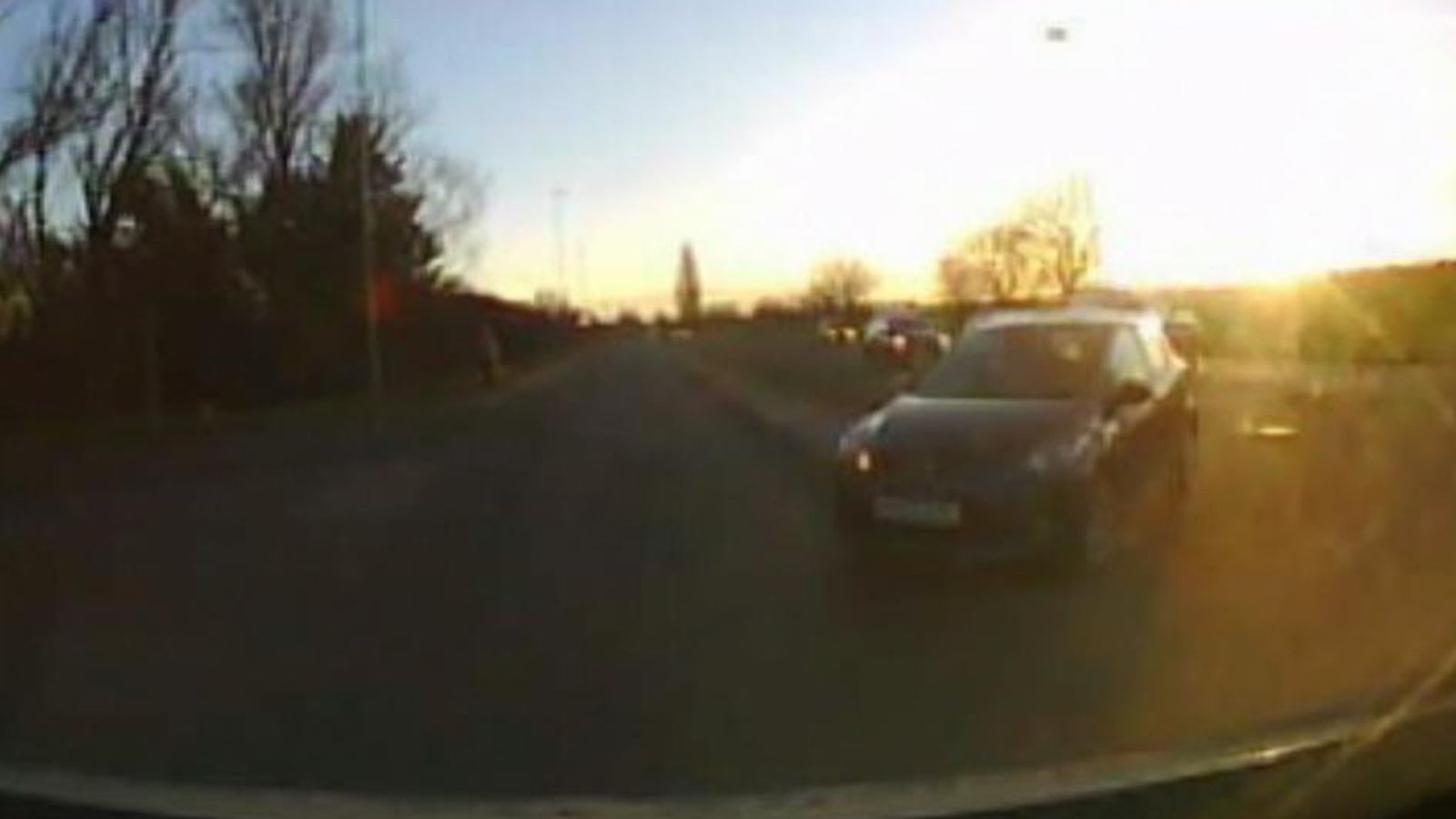Jurors were shown dashcam footage from the moment a pensioner’s car turned into the path of a van, which led to the death of a baby and caused a mother serious injuries.
Shelagh Robertson, the pensioner accused of causing the crash that killed five-month-old Louis Thorold and causing his mother, Rachael Thorold, serious injuries, was suffering from undiagnosed dementia, Cambridge Crown Court heard.
The court was told the 75-year-old was driving home from a shopping trip to Tesco when she turned into the path of the oncoming van on the A10 at Waterbeach in Cambridgeshire, forcing it on to the pavement.
Mrs Thorold and her husband Chris left the courtroom as around 15 seconds of footage from the van’s dashcam was shown on Monday.
The clip stops before the moment of impact.
Robertson, of Stables Yard, Waterbeach, denies causing the baby boy’s death by careless driving.
On Tuesday the court heard her undiagnosed dementia was worsening during the pandemic when there were fewer opportunities for face-to-face contact.
Adam Zeman, professor of cognitive behavioural neurology at the University of Exeter, was instructed by defence lawyers to compile a report on Robertson.
He told jurors the defendant had “dementia caused most probably by Alzheimer’s disease in a slightly atypical presentation”.
Prof Zeman said Robertson would have been at “high risk of becoming confused at that junction and one possible outcome of the confusion would be to look the wrong way”.
“It’s a difficult junction for the average healthy driver,” he said.
Prof Zeman said “some forms of dementia are diagnosed relatively late as the features are rather subtle”.
“The time her problems were getting more severe coincided with the pandemic so there would have been fewer opportunities for face-to-face contact than there normally would be,” he said.
The expert witness added that Robertson had “few close relatives” and her husband was “severely unwell”, which was significant as “it’s often the spouses who bring you along” to a dementia clinic.
Jurors were shown an MRI scan of the defendant’s brain, which Prof Zeman said showed “shrinkage” in a part of the brain associated with memory and language.
He said if he saw someone at his dementia clinic with the “difficulties” he saw in Robertson he would “advise them immediately not to drive”.
Robertson’s friend Angela Brown told the court she was last driven by the defendant in around the winter of 2018.
The former teacher said her friend, who she had known since around 2010, had approached a junction in 2018 on the A10 and “seemed uncertain of how to proceed”.
“I began to feel unsafe and wondered if something was the matter,” she said.
James Leonard, defending, said Robertson will not be called to give evidence.
The trial continues. It is due to last a week.







